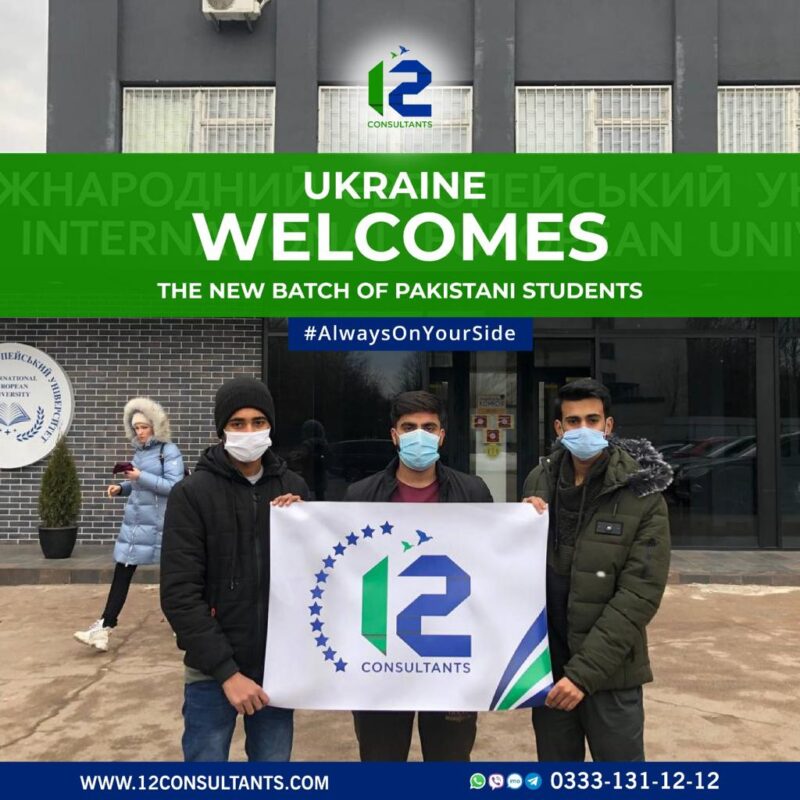

Canada WORK PERMIT FOR FOREIGNERS | JOB TYPES | SALARY
Canada, known for its diverse landscapes, high quality of life, and robust economy, has emerged as one of the most sought-after destinations for individuals seeking employment opportunities. If you’re considering working in the Great White North, it’s essential to understand the intricacies of obtaining a work permit and navigating the path towards permanent residency. In this extensive guide, we will provide you with detailed insights into securing a work permit in Canada, covering essential topics such as job opportunities, salary ranges, the application process, visa requirements, obtaining a Temporary Residence Card (TRC), settling in Canada, and addressing frequently asked questions.
Canada Overview
Location: North America
Currency: Canadian Dollar (CAD)
Official Languages: English, French
Economic Strength: Stable economy with a focus on diverse sectors including technology, healthcare, engineering, and finance
Quality of Life: High standard of living, excellent healthcare system, and progressive social policies


Types of Jobs in Finland
Canada’s dynamic job market offers a wide array of opportunities for individuals with diverse skill sets and expertise. Here’s a breakdown of different job sectors and the types of jobs available, catering to a variety of interests and qualifications:
Information Technology (IT) and Software Development
Software Developer: Design and develop software applications for different platforms.
IT Consultant: Provide expert advice on IT solutions, systems, and infrastructure.
Database Administrator: Manage and organize databases to ensure smooth operations.
Network Engineer: Design, implement, and maintain computer networks for organizations.
Cybersecurity Specialist: Protect computer systems and networks from cyber threats and attacks.
Healthcare and Medicine
Registered Nurse: Provide patient care, educate patients about health conditions, and offer emotional support.
Physician: Diagnose illnesses, prescribe medications, and devise treatment plans for patients.
Pharmacist: Dispense medications, offer advice on prescriptions, and ensure safe drug use.
Dentist: Diagnose and treat dental issues, perform dental procedures, and educate patients about oral health.
Engineering
Civil Engineer: Plan, design, and oversee construction projects such as buildings, roads, and bridges.
Mechanical Engineer: Design and develop mechanical systems, tools, and machinery.
Electrical Engineer: Create and maintain electrical systems, devices, and components.
Aerospace Engineer: Design and develop aircraft, spacecraft, and related systems.
Education
Teacher: Educate students in various subjects, prepare lesson plans, and assess student progress.
University Professor: Conduct research, teach, and mentor students at the university level.
Educational Administrator: Oversee educational institutions, manage staff, and implement policies.
Finance and Banking
Accountant: Prepare and examine financial records, ensure compliance with laws, and recommend financial strategies.
Financial Analyst: Analyze financial data, trends, and investment opportunities to guide business decisions.
Investment Banker: Facilitate financial transactions, mergers, and acquisitions for clients.
Skilled Trades
Electrician: Install, maintain, and repair electrical systems in buildings and other structures.
Plumber: Install and repair plumbing systems, including pipes, fixtures, and appliances.
Welder: Join metal parts, repair metal structures, and fabricate new metal products.
Research and Development
Scientist: Conduct experiments, analyze data, and contribute to scientific advancements in various fields.
Research Analyst: Gather and interpret data, conduct market research, and prepare reports for businesses and organizations.
Sales and Marketing
Sales Representative: Promote products or services, negotiate sales, and build relationships with clients.
Marketing Manager: Develop marketing strategies, oversee campaigns, and analyze market trends.
Agriculture and Forestry
Farmer: Cultivate crops, raise livestock, and manage agricultural operations.
Forester: Manage forests, assess tree health, and plan sustainable forestry practices.
Hospitality and Tourism
Chef: Prepare and cook food in restaurants or other dining establishments.
Hotel Manager: Oversee hotel operations, manage staff, and ensure guest satisfaction.
Creative Arts and Media
Graphic Designer: Create visual concepts, layouts, and designs for various media platforms.
Journalist: Investigate and report news stories for newspapers, magazines, television, or online media.
Average Salary & Income (EUR)
| Profession | Average Annual Salary Range |
|---|---|
| IT Specialist | $60,000 – $120,000 |
| Healthcare Worker | $50,000 – $110,000 |
| Engineer | $65,000 – $130,000 |
| Teacher | $45,000 – $95,000 |
| Financial Professional | $55,000 – $120,000 |
| Skilled Trades Worker | $50,000 – $90,000 |
| Hospitality Worker | $30,000 – $60,000 |
| Research Scientist | $60,000 – $110,000 |
| Sales & Marketing | $45,000 – $100,000 |
| Agriculture Expert | $40,000 – $80,000 |
How to Apply for Work Permits?
Find a Job: Start by securing a job offer from a Canadian employer. Without a confirmed job, you cannot apply for a work permit.
Employer’s Role: Your employer will be responsible for submitting the necessary documents to Employment and Social Development Canada (ESDC) or Immigration, Refugees and Citizenship Canada (IRCC), depending on the type of work permit you need.
Gather Required Documents: Collect necessary documents, including your job offer letter, Labor Market Impact Assessment (LMIA) if required, proof of educational qualifications, proof of work experience, and a valid passport.
Submit the Application: Your employer submits the application on your behalf. Ensure all documents are accurate and complete. Processing times can vary, so apply well in advance of your intended start date.
Apply for Work Visa: After your work permit is approved, you can apply for a work visa at the nearest Canadian embassy or consulate in your home country. Provide proof of your work permit approval, passport, and other required documents.
Obtain a Temporary Residence Card (TRC): Upon arrival in Canada with a work visa, apply for a Temporary Residence Card (TRC) within the designated timeframe. The TRC allows you to legally reside and work in Canada for the duration of your employment contract.
Renewal: Work permits have specific durations. Ensure to apply for renewal before your permit expires. Keep all documents updated and submit the renewal application on time to avoid legal complications.
Valid Passport: Ensure your passport is valid for the entire duration of your intended stay in Canada.
Job Offer: Obtain a formal job offer specifying your job position, salary, working hours, and duration of employment.
LMIA (if required): Provide a Labor Market Impact Assessment if your job requires one.
Health Examination: Some applicants may need to undergo a medical examination to prove they are in good health.
Criminal Record Check: Submit a police certificate to prove you have no criminal record.


Canada Work Visa Ratio
Canada is known for its inclusive immigration policies. The work visa approval rate is generally high for eligible applicants who meet all the requirements and have a genuine job offer from a Canadian employer.
How to Obtain Canada TRC (Temporary Residence Card)
Securing a Temporary Residence Card (TRC) in Canada is a vital step toward establishing your legal residency in the country. Here’s a detailed guide on how to obtain your TRC:
1. Legal Residence Basis: Before applying for a TRC, you must have a legal residence basis in Canada. This typically involves holding a valid work permit, study permit, or being a refugee claimant.
2. Application Submission: Prepare all necessary documents, including proof of legal residence, job offer (if applicable), proof of accommodation, and financial stability. Submit your TRC application to Immigration, Refugees and Citizenship Canada (IRCC) within the specified timeframe.
3. Biometric Data Collection: After submitting your application, you may be required to provide biometric data, including fingerprints and a photo. You can do this at a Visa Application Centre (VAC).
4. Processing Time: The processing time for a TRC can vary. It’s crucial to monitor the progress of your application through the IRCC website and be patient during this period.
5. TRC Issuance: If your application is approved, you will receive your Temporary Residence Card. This card serves as official proof of your legal residence status in Canada. Ensure that all the information on the card is accurate.
6. Renewal: TRCs are typically issued for a specific period, often in alignment with the duration of your work permit or study permit. As your TRC expiration approaches, initiate the renewal process well in advance to avoid any gaps in your legal status. Keep all documents, including your work or study permit, valid and up to date.
7. Permanent Residency Pathways: While holding a TRC, you can explore various pathways to Canadian permanent residency. Consider programs like Express Entry, Provincial Nominee Programs (PNPs), or family sponsorship, depending on your eligibility criteria. These programs can lead to a smooth transition from temporary to permanent residency in Canada.
8. Professional Assistance: Navigating the immigration process can be intricate. Consulting with an immigration lawyer or a certified immigration consultant can provide valuable guidance, ensuring that your TRC application and subsequent permanent residency endeavors are thorough and well-prepared.
PR & Settlement In Canada
Legal Permanent Residency (PR) Status: Once you have spent a considerable amount of time in Canada as a temporary resident and have adhered to all the regulations, you may be eligible to apply for legal Permanent Residency (PR).
Continuous Legal Residence: Maintaining continuous legal residence in Canada is crucial. Any interruptions, extended periods outside the country, or failure to comply with the terms of your visa or permit might impact your eligibility for PR.
Stable Income and Accommodation: Demonstrating a stable source of income and secure housing in Canada is essential. This showcases your integration into Canadian society and your ability to support yourself and your family.
Language Proficiency: While not always mandatory, having a strong command of English or French can enhance your PR application. Proficiency in one of Canada’s official languages might be necessary for certain immigration programs.
Integration into Canadian Society: Participating in community activities, volunteering, or engaging in cultural events demonstrates your integration into Canadian society. It also strengthens your PR application, emphasizing your commitment to becoming a part of the Canadian community.
Application Process: Once you meet the residency requirements, you can apply for PR through various immigration programs such as Express Entry, Provincial Nominee Programs (PNPs), Family Sponsorship, or Canadian Experience Class (CEC). Ensure you have all necessary documents, including proof of continuous legal residence, financial stability, and language proficiency if required.
Permanent Residency Permit: A successful PR application results in a Permanent Residency Permit, allowing you to reside in Canada indefinitely and providing a pathway to Canadian citizenship if you meet future criteria.
Canadian Citizenship (Optional): After residing in Canada for a specific number of years as a permanent resident, you may become eligible to apply for Canadian citizenship. Requirements typically include language proficiency, knowledge of Canadian history and values, and a demonstrated commitment to the country.
Professional Assistance: Given the complexity of immigration laws and processes, consulting with an immigration lawyer or expert can be immensely helpful. They can guide you through the application process, ensuring all documents are in order and increasing your chances of a successful PR application and settlement in Canada.


Generally, a job offer from a Canadian employer is required to apply for a work permit. However, certain open work permits, such as the Working Holiday Visa, allow individuals to work in Canada without a specific job offer.
Processing times vary, but it typically takes a few weeks to a few months, depending on the type of work permit and the applicant’s country of residence.
Language requirements for work permits depend on the type of job and the employer’s language preferences. Some jobs may require proficiency in English or French.
In many cases, spouses and dependent children of foreign workers with valid work permits can apply for open work permits or study permits to accompany the primary applicant in Canada.
Work permits can often be extended if the job offer is extended, or if the applicant applies for a different work permit category. It’s crucial to apply for an extension before the current permit expires.


Recent Blogs
Request a Call-back
Study in Finland for Pakistani Students | Tuition Fee | Eligibility Criteria | Finland Visa Guide | Scholarships In Finland Finland, known for its high-quality
Study in Ireland for Pakistani Students | Tuition Fee | Eligibility Criteria | Ireland Visa Guide | Scholarships In Ireland Ireland has become a beacon
Study in Norway for Pakistani Students | Tuition Fee | Eligibility Criteria | Norway Visa Guide | Scholarships In Norway Norway, with its breathtaking landscapes,
Study in Slovenia for Pakistani Students | Tuition Fee | Eligibility Criteria | Slovenia Visa Guide | Scholarships In Slovenia Slovenia, situated at the crossroads
Study in Switzerland for Pakistani Students | Tuition Fee | Eligibility Criteria | Switzerland Visa Guide | Scholarships In Switzerland Switzerland attracts medical students with
Study in Switzerland for Pakistani Students | Tuition Fee | Eligibility Criteria | Switzerland Visa Guide | Scholarships In Switzerland Switzerland boasts a world-renowned education
Study in MBBS for Pakistani Students | Tuition Fee | Eligibility Criteria | MBBS Visa Guide | Scholarships In Hungry Hungary holds a strong educational
Study in Hungry for Pakistani Students | Tuition Fee | Eligibility Criteria | Hungry Visa Guide | Scholarships In Hungry Hungary holds a strong educational
Study MBBS in Portugal for Pakistani Students | Tuition Fee | Eligibility Criteria | Portugal Visa Guide | Scholarships In Portugal Portugal offers a compelling





















